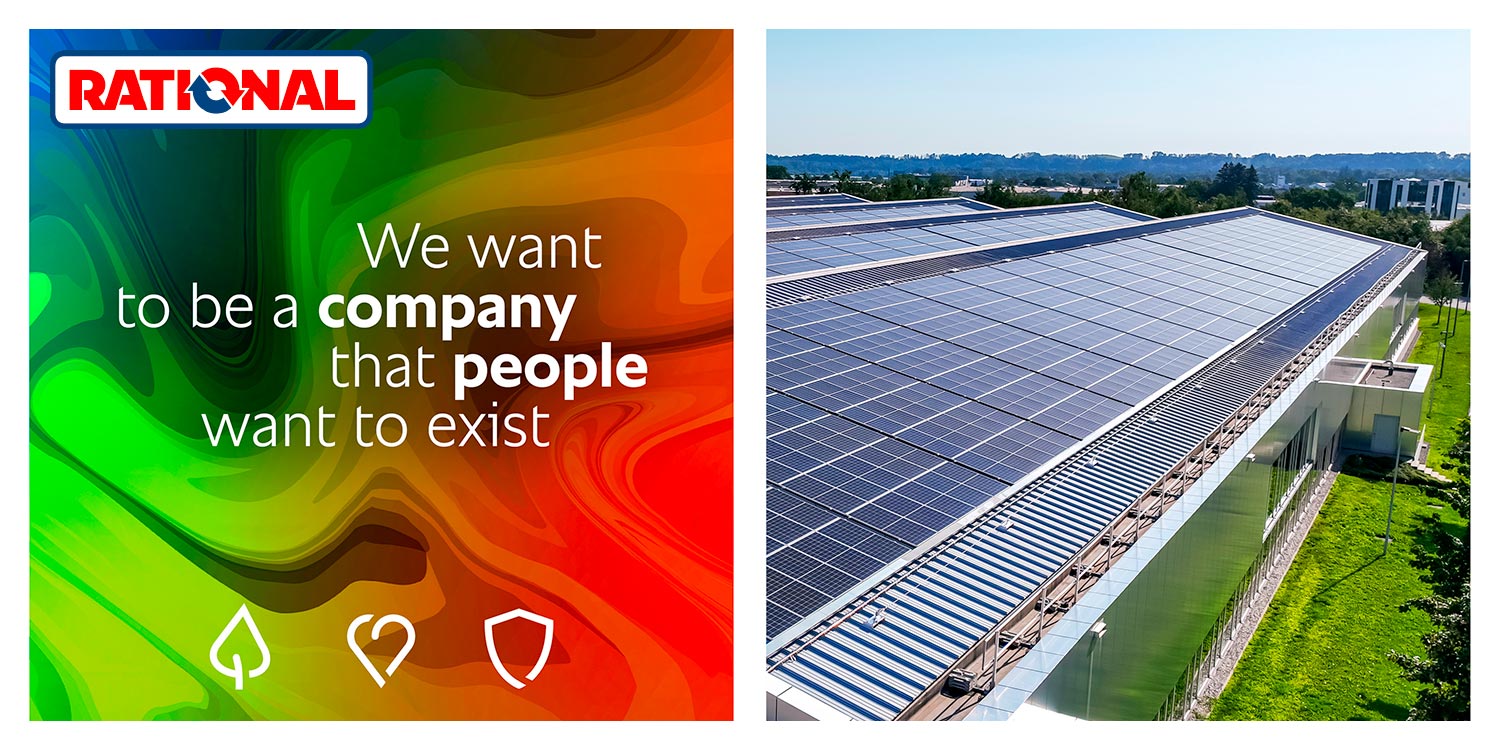Rational publishes its sustainability strategy
When it launched its first combi-steamer in 1976, Rational promoted it as an environmentally friendly and efficient alternative to conventional kitchen technology. At a time when environmental issues didn’t play a big role. The new sustainability strategy shows that the company has not only remained true to its original claims, but also has a vision for the future. It outlines how the company will protect the climate, conserve resources, promote equal opportunities, support well-being, create transparency and strengthen partnerships.
Rational has based its sustainability strategy on the guiding principle ‘We want to be a company that people want to exist‘. It covers the action areas of environment, community and responsibility, for each of which the company has set targets, and progress is measured continuously and transparently. Dr Peter Stadelmann, CEO of Rational AG, says: “Sustainability is a complex issue that affects not only the company, but also partners and customers. And it can only be achieved if we all work together.”
The company’s environmental activities focus on ‘climate protection’ and ‘resource conservation’. This includes the climate target, in which Rational commits to being greenhouse gas neutral for Scopes 1 and 2 and for Scope 3 emissions that can be directly influenced by 2050. Scope 1 refers to direct emissions resulting from the burning of fossil fuels in production, in the company’s fleet or through manufacturing processes within the company itself. Scope 2 emissions are indirect emissions caused by the purchase of electricity. Scope 3 emissions are also indirect emissions but are caused by processes in the value chain. This figure also includes the emissions avoided globally through the use of Rational appliances in professional kitchens.
The target is to be achieved in stages, with a 42% reduction in Scope 1 and 2 greenhouse gases by 2030 compared to 2023. Among the many initiatives already launched are sustainable buildings and the construction of a photovoltaic system. Work is currently underway to expand the use of photovoltaics and to make the company’s fleet CO2-neutral. Mr Stadelmann says: “The concept of sustainability has always been built into our products, even if we have not emphasised it. It is part of our DNA. Compared to conventional kitchen technology, Rational cooking systems can save up to 30% energy, up to 50% water and up to 30% space. And our sustainability strategy shows that we can and will do even more.”
In the action area of community, Rational aims to ‘promote equal opportunities’ and ‘support well-being’. This means that diversity and work safety are the focus of the world market leader. Not just for its own employees, but for everyone who works in professional kitchens around the world. This includes the design of the company’s workplaces as well as the ergonomics of its cooking systems, which make customers’ workplaces much healthier.
“Creating transparency” and “Strengthening partnerships” define the action area of responsibility. This includes compliance, open communication of policies with employees and business partners, and a commitment to human and labour rights throughout the value chain. And, as you would expect from a company involved in food preparation, Rational is committed to promoting healthy eating in society.
“When it comes to sustainability, you have to think beyond your own work and lifetime. We need to make the right decisions today to ensure a good future. As people, as customers, as employees and as a company,” concluded Mr Stadelmann.
Further information on Rational’s sustainability strategy is published on the company’s website: rational-online.com.



